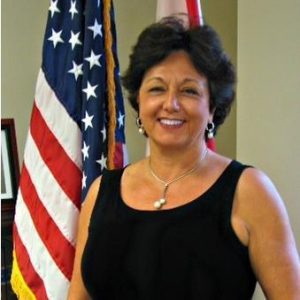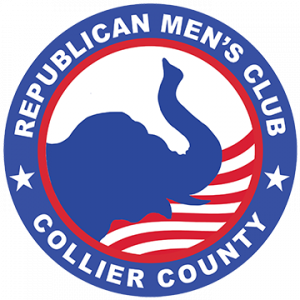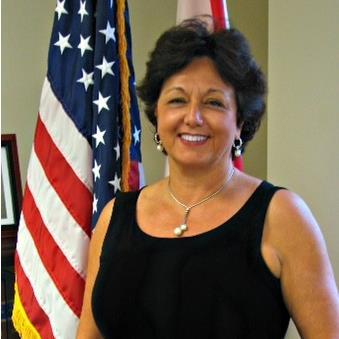Update – Kathleen Passidom0 – Week 2
 Friends, We had another busy week in the Capitol culminating with significant legislation being presented on the Senate floor. Earlier in the week, six of my sponsored bills passed unanimously in committee, and the Health Policy and Commerce and Tourism Committees met to discuss a number of legislative actions. Magic Johnson paid a visit to the Capitol and I was fortunate to meet with him. He really is tall!
Friends, We had another busy week in the Capitol culminating with significant legislation being presented on the Senate floor. Earlier in the week, six of my sponsored bills passed unanimously in committee, and the Health Policy and Commerce and Tourism Committees met to discuss a number of legislative actions. Magic Johnson paid a visit to the Capitol and I was fortunate to meet with him. He really is tall!
Bills Passed on the Floor This week the Senate passed SB 128 by Senator Rob Bradley in floor Session on a 23-15 vote. This bill would amend Florida’s Stand Your Ground Law to make clear that the burden of proof lies with the state, not the defendant in cases where the defendant makes a “stand your ground” defense. SB 128 will now move on to a vote in the House of Representatives.
Sponsored Bills:
SB 172 Guardianships The bill makes several changes to the Florida guardianship statutes to streamline the process and improve protections for wards. Specifically, the bill:
- Creates a notice-and-demand procedure for hearsay and other objections to the examining committee reports in guardianship/incapacity proceedings;
- Clarifies the time for submission of the annual guardianship report;
- Preserves a ward’s right to access to the courts by removing the requirement that a ward’s spouse consent to dissolution of marriage before authorizing a guardian to seek dissolution; and
- Removes the current arbitrary statutory cap on the amount a guardian may expend on funeral expenses for a ward.
SB 172 is supported by the Real Property, Probate & Trust Law Section of the Florida Bar, The Elder Law Section of the Florida Bar and The Florida Public Guardian Coalition and passed unanimously in its second committee of reference.
SB 204 Actions Founded on Real Property Improvements
This bill seeks to clarify the definition of “completion of contract” in cases pertaining to construction litigation. “Completion of contract” is one of four factors in determining when the 10 year “Statute of Repose” limitations commences. The Statute of Repose is a statute of limitations for the time period within which a construction defect action must be filed. Definition of “completion of contract” is not defined in statute but a recent appellate court ruled that “completion of contract” means when an owner makes final payment to the contractor. Unfortunately, Owners then draw out final payment for any number of reasons leading to a potential lengthening of the statute of limitations period beyond the 10 years. This tactic leaves contractors vulnerable to lapses in insurance coverage on completed work. The bill seeks to clarify the issue to define the completion contract to mean either 1.) date of final performance of all the contracted services or 2.) the date of the final payment for such services becomes due. The bill passed unanimously in its first committee of reference.
CS/SB 398 Estoppel Certificates
Currently when an owner of real property located in a homeowners or condominium association sells or refinances they are required to obtain an estoppel certificate from the condominium or homeowner association. Until the past several years obtaining the certificate was a simple matter for little or no cost to the owner. Unfortunately, the cost to obtain the certificate has skyrocketed and a property owner who is either selling or refinancing their property has no option but to pay whatever is demanded for the estoppel certificate. Since the information is required to be maintained monthly under s. 718.111(12)(a)(11)(b), F. S. the cost to produce the certificate is minimal. SB 398 revises requirements for estoppel certificates for condominium, cooperative, and homeowners’ associations. The bill passed unanimously in its first two committees of reference.
SB 724 Estates
SB 724 amends the section of Florida Statute dealing with the right of a surviving spouse to take an elective share of the decedent’s assets after death. Under Florida, upon the death of a person their surviving spouse is entitled to take whatever was devised to them under the will of the decedent or may elect to take 30% of the aggregate value of all of the decedent’s assets at death (known as an elective share).
The Real Property, Probate and Trust Law (“RPPTL”) Section of The Florida Bar convened an ad hoc committee to study Florida’s elective share laws and determined that over the years, practical experience and application of the elective share statutes revealed several issue that needed to be addressed. The bill is the product of the RPPTL Ad Hoc Committee’s years of close study and in-depth discussion.
The bill:
- Makes changes to how “protected homestead” is included in the elective estate and how it is valued for purposes of satisfying the elective share. These changes are necessary because there is a serious anomaly that results with respect to the amount of the elective share that a surviving spouse receives based upon whether a marital residence was owned as tenants by the entireties by both spouses or if it was owned solely by the deceased spouse. The bill ameliorates those discrepancies;
- Extends the time during which the surviving spouse can petition the court for an extension of time to file for the elective share;
- Adds a provision assessing interest against persons who are very delinquent in fulfilling their statutory obligations to pay or contribute towards satisfaction of the elective share;
- Addresses awards of attorney fees and costs in certain elective share proceedings;
- Adds provisions to assure qualification of certain elective share trusts for certain tax benefits afforded to other trusts.
- The bill passed unanimously in its first committee of reference.
SB 446 – Underground Facilities
On Tuesday afternoon, I presented my last bill of the day to the Committee on Environmental Preservation and Conservation.
SB 446 amends ch. 556, F.S., the “Underground Facility Damage Prevention and Safety Act” by:
- Requiring an excavator that causes contact with or damage to any pipe or other underground facility to immediately report the contact or damage by calling 911 if any natural gas or other hazardous substance regulated by the Pipeline and Hazardous Materials Safety Administration (PHMSA) of the U.S. Department of Transportation (USDOT) has escaped;
- Requiring a member operator to file a report with the Sunshine State One-Call of Florida (SSOCF) system of all events it has received notice of through the systems which have resulted in damages to its underground facilities;
- Providing that if a citation is issued by a state law enforcement officer, 80 percent of the civil penalty collected by the clerk of the court for the citation will be distributed to the governmental entity whose employee issued it; and
- Requiring the SSOCF board of director’s annual progress report to the Legislature and the Governor on the participation by municipalities and counties in the one-call notification system, to include a summary of the damage reporting data received by the system for the preceding year and any analysis of the data by the board.
- The bill passed unanimously in committee.
SB 716 Real Estate Appraisers
After Floor Session on Wednesday, I presented SB 716 to the Committee on Regulated Industries.
The bill:
- Simplifies current educational requirements by eliminating the post-licensure education requirement for trainee appraisers.
- Updates Appraisal Management Company provisions in statute to meet the minimum regulatory standards, as required by federal law to avoid potential restrictions on federally related transactions by the federal government.
- Revises language regarding “distance learning” allowing students access to more modern types of instruction, including webinars and live streaming.
- Gives the Appraisal Board rulemaking authority to adopt alternate standards of practice for non-federally related transactions.
My Committees:
Health Policy Tuesday morning the committee on Health Policy met on a number of different considerations including: SB 328 relating to Regulation of Nursing, SB 496 relating to Medical Faculty Certification, SB 672 relating to Certificates of Nonviable Birth, SB 674 relating to Public Records/Nonviable Birth Records, SB 804 relating to Electronic Health Records, SB 876 relating to Programs for Impaired Health Care Practitioners, SB 888 relating to Prescription Drug Price Transparency, SB 1050 relating to Memory Disorder Clinics, SB 1130 relating to Pregnancy Support Services, SB 222 relating to Recovery Care Services, SB 102 relating to Payment of Health Care Claims, and SB 634 relating to Involuntary Examinations Under the Baker Act. All of these bills were reported out of committee favorably.
Commerce and Tourism
SB 600 relating to Rural Economic Development Initiative, SB 936 relating to Regional Rural Development Grants, and SB 364 relating to Recovery Fund for the Deepwater Horizon Incident were passed unanimously on Monday afternoon when the Committee on Commerce and Tourism met.
Other Legislative News
Religious Expression
Students of any faith, or no faith, have a right to free speech,” said Senate President Joe Negron (R-Stuart). “The government should not impose a religion, but all too often we see the other extreme where we are taking away people’s right to free speech and their right to practice their faith in a way they believe is appropriate. This legislation makes it clear that we support the constitutional rights of Freedom and Speech and Freedom of Religion for everyone associated with our public school system.”
“Students should not have to surrender their constitutional rights at the school house door. Neither should teachers, administrators or parents,” said Senator Baxley. “Freedom of Speech and Freedom of Religion are fundamental to our way of life as Americans and this legislation ensures that we protect these critical rights in our public schools.”
Senate Bill 436 authorizes students to express religious beliefs in written and oral assignments, free from discrimination. Students may also wear clothing, accessories, and jewelry that display a religious message or symbol to the same extent secular types of clothing, accessories, and jewelry that display messages or symbols are permitted in public school dress codes. Further, students may pray, or engage in and organize religious activities before, during, and after the school day, to the same extent student engagement in secular activity or expression, and the organization of secular activities and groups are permitted. The legislation requires a school district to comply with Title VII of the Civil Rights Act of 1964 and specifies that a school district may not prevent school personnel from participating in religious activities on school grounds that are student-initiated at reasonable times before or after the school day.
Districts must allow a religious group access to the same school facilities for assembling as a secular group without discrimination. Additionally, the bill requires school districts to adopt a policy that establishes a limited public forum for student speakers at any school event at which a student is to speak publicly. The legislation also requires the Florida Department of Education to develop and publish on its website a model policy regarding a limited public forum and the voluntary expression of religious viewpoints by students and school personnel in public schools. The model policy must be adopted and implemented by each district school board.
Constituent Corner
This week I met with constituents who were visiting to promote Visit Florida and other important causes.
If you have any questions or concerns, please don’t hesitate to contact my office. Thank you, and I look forward to continue serving as your State Senator!
Sincerely,
Senator Kathleen Passidomo
District 28



